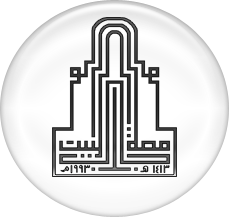| DC Field | Value | Language |
|---|
| dc.contributor.author | مازن الحريري | - |
| dc.date.accessioned | 2022-08-23T08:04:20Z | - |
| dc.date.available | 2022-08-23T08:04:20Z | - |
| dc.date.issued | 2021-09-19 | - |
| dc.identifier.uri | http://hdl.handle.net/123456789/2277 | - |
| dc.description.abstract | ملخص
يناقش البحث الادعاء بأن في بعض عبارات الفقهاء، وبعض أحكامهم على عدد من المسائل دلالة على تفضيل الذكر على الأنثى، وأن ذلك نتيجة نزعة ذكورية لديهم، ولذا تناول البحث دراسة مسائل فقهية في إطار الأسرة يتم استغلالها للحديث عن وجود نزعة ذكورية في الفقه الإسلامي، وكانت الدراسة وفق مناهج: الاستقراء ثم التحليل والاستنباط وذلك من خلال الاطلاع بعمق على هذه المسائل، وتتبع أقوال الفقهاء وعباراتهم المستخدمة في دراستها؛ لمعرفة ما إذا كانت تسهم في التقليل من قيمة المرأة أو تحط من كرامتها، وهل هي دليل على وجود نزعة ذكورية في الفقه الإسلامي؟
ومن أهم النتائج التي خلص إليها البحث أن الفقه الإسلامي بعيد عن تهمة الذكورية، وأنه لو كانت أقوال الفقهاء التي توهم التفضيل والتحيز نتجت عن ذكورية محضة لكانت كل أحكامهم أو جلها ضد المرأة، لكن هذا لم يحصل، فقد رأينا الفقهاء أنفسهم الذين يقولون بما يوحي الذكورية في مسألة يقفون مع المرأة في مسألة أخرى مشابهة.
الكلمات الدالة: الذكر، الأنثى، الحياة الأسرية، يحق للرجل، لا يحق للمرأة، تحيز، تفضيل.
Masculinity in Islamic jurisprudence
-Analytical study in the context of the family-
Abstract
The research discusses the claim that in some of the jurists’ statements, and some of their rulings on a number of issues, an indication of the preference of the male over the female, and that this is the result of a patriarchal tendency in Islamic jurisprudence. , according to the methods: induction, then analysis and deduction, by looking in depth at these issues, and following the sayings and phrases of the jurists used in their study to see if they contribute to reducing the value of women or degrading their dignity, and is it evidence of a patriarchal tendency in Islamic jurisprudence?
One of the most important findings of the research is that Islamic jurisprudence is far from the accusation of masculinity, and that if the sayings of the jurists that illusion masculinity resulted from pure masculinity, all or most of their rulings would have been
against women, but this did not happen, we have seen the same jurists who say what suggests masculinity in the issue of standing with the woman in another similar issue.
Key words: Male, female, family life, a man has a right, a woman has no right, prejudice, preference. | en_US |
| dc.subject | الذكر، الأنثى، الحياة الأسرية، يحق للرجل، لا يحق للمرأة، تحيز، تفضيل. | en_US |
| dc.title | النَزْعـة الذكوريـة في الفقـه الإسلامـي - دراسة تحليلية في إطار الأسرة - | en_US |
| dc.type | Other | en_US |
| Appears in Collections: | المجلد 18، عدد 3 لسنة 2022
|

